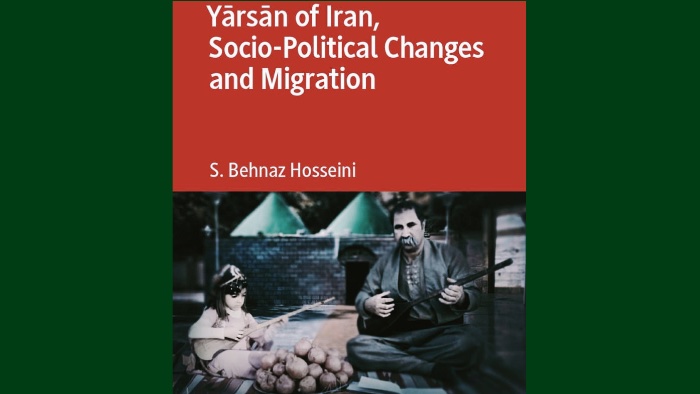Yārsān of Iran, Socio-Political Changes and Migration

The Yarsan faith, also known as Ahl-e Haqq (People of the Truth) is estimated to have about two million followers in Iran, most of whom live in the western, predominantly Kurdish provinces and especially in Kermanshah. This religion also has some followers in Turkey and Iraq. This religious minority is not recognized by the Iranian Constitution, and the members of this community have faced continuous discrimination and persecution in the country to such an extent that many have been forced to deny their faith in public.
The members of traditional Yarsan communities are becoming more visible in the Western countries, such as Sweden, both as diaspora groups and in academia.
Behnaz Hosseini,a visiting research fellow at the University of Oxford who has studied religious minorities in Iran and Iraq, in Yārsān of Iran, Socio-Political Changes and Migration provides insights about the cultural, historical and religious context of Yarsan and “People of truth” challenges in Iran, where they live with daily discrimination, and how they survived.
One part of the book is based on an empirical study of qualitative research methods and is in the form of an open interview with 120 Yārsāni informants living in Sweden and in Iran, as well as online.
In another part of the book, Behnaz Hosseini, seeks in her study ”to understand religious transformation and innovation of the Yārsāni community in Iran. Religion and local identity have reemerged as fundamental elements within the Yārsāni cultural homeland and as important markers used by individuals to classify themselves.”
Behnaz Hosseini has told MvoicesIran that, when the Internet found its way to small cities and villages, Facebook became a place for Yarsan people who were previously silent and were searching to build their identity.
The freedom to use the Internet and the freedom of expression have long been oppressed in Iran, and the Yarsanis were no exception. Behnaz Hosseini says that several people who provided Yarsan Instagram and Facebook pages got into trouble and were arrested. She believes that social media was an important tool for presenting religious and social aspects of the Yarsani people, but it was not very helpful for political issues.
